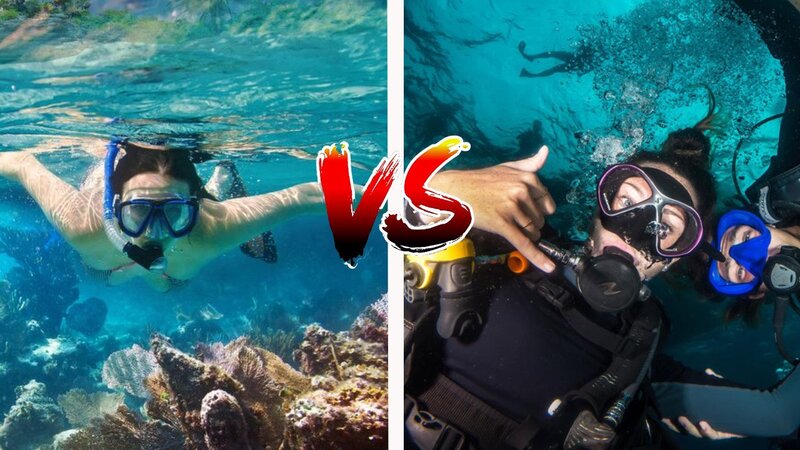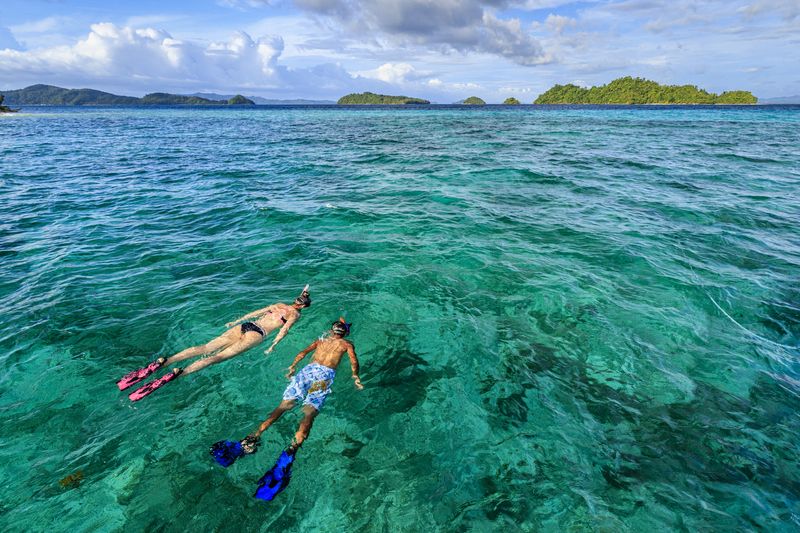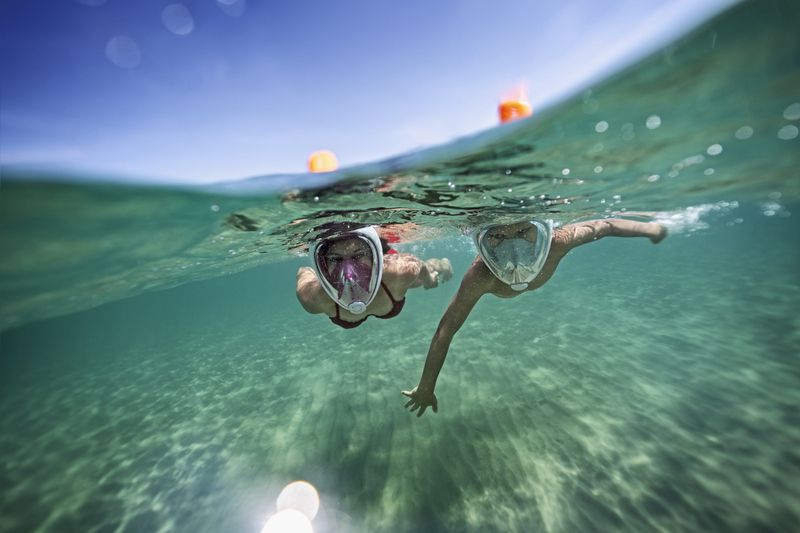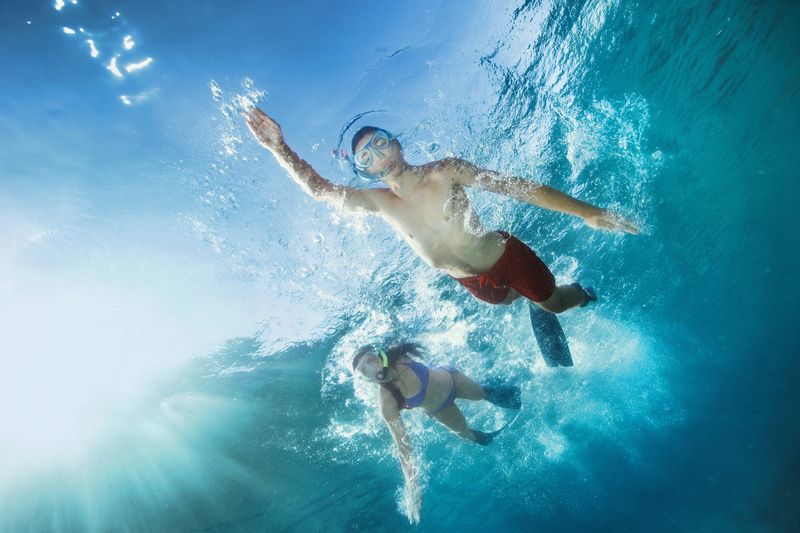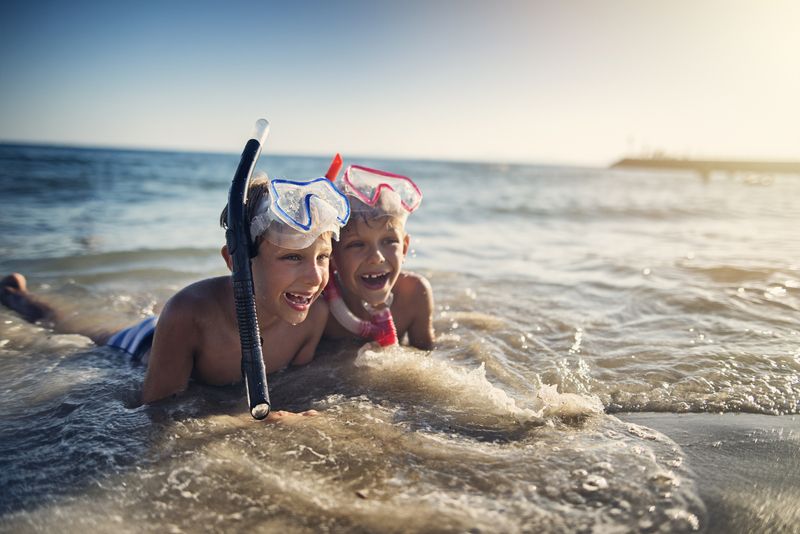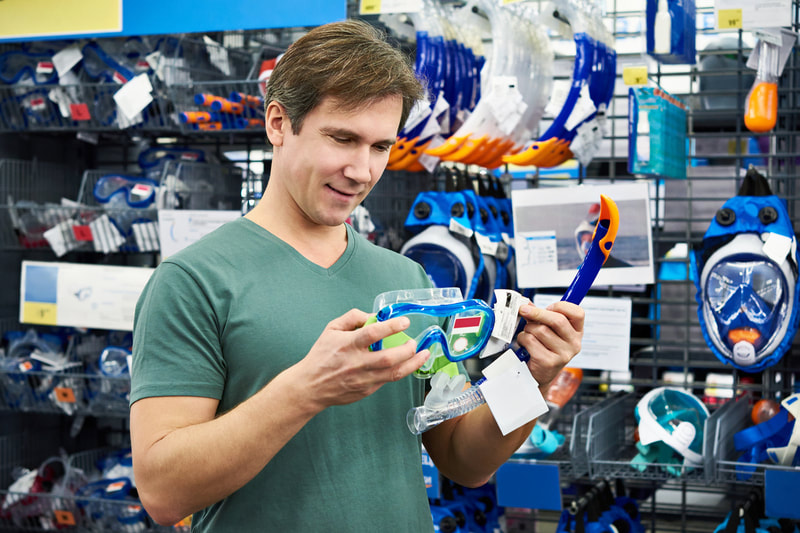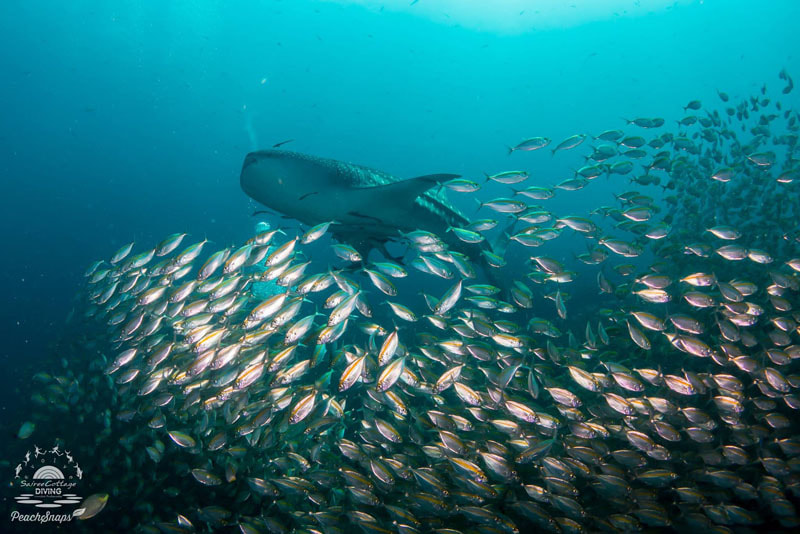Snorkeling vs Scuba Diving - What is the difference?
Snorkeling vs Scuba Diving is a question on many people's minds when they go on holiday. Everyone loves to enjoy the beautiful coral and fish and you can see that by snorkeling or by scuba diving.
Choosing between Snorkeling vs Scuba Diving depends on many factors. To make a good division we are going to look deeper into the difference between snorkeling and scuba diving in this article.
Which of the following indicates scuba diving or snorkeling activity
A snorkel activity is where you go out on your own or with an organized snorkeling tour and just a mask, snorkel, fins, and maybe a snorkel vest you swim on the surface looking underwater at corals and fish.
A scuba diving activity is where you dive and stay underwater for as long as your air cylinder or no-decompression limits allow it. This way you can enjoy the coral and fish more closely in comparison to a snorkeling activity.
Which is better snorkeling or scuba diving
The answer to which is better snorkeling or scuba diving depends mostly on the person's preferences. However, other factors can also play a role like how much in water experience a person has, are you a good swimmer, do you have fear of the depth (similar to the fear of heights), where are you planning to go snorkeling or scuba diving, how much money you are willing to spend on the scuba diving or snorkeling activity and much more.
I know people that only love snorkeling. I know people that think scuba diving is better and I know people that love snorkeling and scuba diving the same. That is why I recommend trying out snorkeling vs scuba diving yourself and then find out which is better snorkeling or scuba diving.
Learn more about snorkeling tips here
Learn more about snorkeling tips here
Difference between snorkeling and scuba diving
To know which is better snorkeling or scuba diving, it is important to understand the difference between snorkeling and scuba diving. Here is a summary of the difference between snorkeling and scuba diving:
Snorkeling vs scuba diving:
Snorkeling vs scuba diving:
- You stay at the surface looking down on fish and coral
- Snorkel equipment is easy to use
- Less risk snorkeling vs scuba diving
- Snorkel equipment is easy to carry and travel with
- Very affordable, snorkeling has almost no cost
- Almost any age can go snorkeling
- Snorkel equipment is cheap compared to scuba diving equipment
- See more color underwater than scuba diving
- Snorkeling involves almost no skills
Scuba diving vs snorkeling:
- You dive underwater and can enjoy the aquatic life much closer
- You need a scuba diving certification to be able to scuba dive without supervision
- Scuba diving equipment is heavier and not always easy to travel with
- Scuba diving is relatively safe, but accidents can happen and you have more risk than a snorkeling activity
- Scuba diving activity is more expensive than a snorkeling activity
- There will be some age restrictions depending on what type of scuba diving you want to do
- Scuba diving equipment is more expensive than snorkel equipment
- Chances to see larger and different fish when scuba diving
Dive deeper with Scuba Diving vs Snorkeling and staying at the surface
f you are a bit nervous about diving deeper underwater, then snorkeling is a better activity as you stay on the surface. From the surface, you can still enjoy the beautiful marine life, especially if you visit a shallow reef.
The only downside of staying on the surface while snorkeling is that you are still further away from aquatic life, even if you go somewhere shallow.
With scuba diving you can now visit the underwater world and get much closer to the fish and coral, giving you more of a feeling that you belong to the reef.
The only downside of staying on the surface while snorkeling is that you are still further away from aquatic life, even if you go somewhere shallow.
With scuba diving you can now visit the underwater world and get much closer to the fish and coral, giving you more of a feeling that you belong to the reef.
Equipment for snorkeling vs scuba diving equipment
Snorkel equipment is mask, snorkel, and fins. In some cases, you might want a snorkel vest. This means that snorkeling equipment is easy to carry and travel with. It is compact and small. Just put it in a backpack, visit some beaches and go snorkeling whenever you want.
You need a lot more scuba diving equipment to safely dive underwater. A basic set of scuba diving equipment consists of a mask, snorkel, BCD, fins, regulator, scuba cylinder, optional wetsuit, and safety equipment like a whistle, DSMB, and a dive knife.
You need a lot more scuba diving equipment to safely dive underwater. A basic set of scuba diving equipment consists of a mask, snorkel, BCD, fins, regulator, scuba cylinder, optional wetsuit, and safety equipment like a whistle, DSMB, and a dive knife.
All this Scuba equipment is heavy and not always easy to travel with, but you can solve that by just renting diving equipment at the dive shop. If you start scuba diving a lot, then I recommend purchasing scuba diving gear as is much more comfortable than rental scuba gear.
Is snorkeling safer than scuba diving
A big snorkeling and scuba diving difference is that most people considered snorkeling safer than scuba diving. You can still get injured on both snorkeling and scuba diving activity. However, don’t worry too much as both scuba diving and snorkeling activities are considered quite safe if you follow the rules and stay within industry standards.
We always recommend going snorkeling or scuba diving under professional supervision with a snorkel tour or dive shop until you have enough experience and training to venture out with a buddy. Just remember to never scuba dive or snorkel alone.
Are there age restrictions for snorkeling vs scuba diving?
There are no training organizations that offer snorkel courses. Therefore there are no standards for snorkeling and anyone at any age can go snorkeling. It all depends on the individual snorkel and swimming skills. For example, a 6-year-old with good swimming skills can go snorkeling under the supervision of an adult, while maybe a 22-year-old with bad swimming skills is not ready for snorkeling yet.
Depending on the dive training organization there are strict standards when it comes down to the starting age when you want to go scuba diving. For example, the minimum age for the PADI Open Water Diver Course is 10 years old, for Advanced Open Water and Rescue Diver 12 years old, and the Divemaster and PADI IDC Courses is 18 years old.
Depending on the dive training organization there are strict standards when it comes down to the starting age when you want to go scuba diving. For example, the minimum age for the PADI Open Water Diver Course is 10 years old, for Advanced Open Water and Rescue Diver 12 years old, and the Divemaster and PADI IDC Courses is 18 years old.
Do you need a certification for scuba diving vs snorkeling?
To enjoy a snorkeling activity you don’t need a certification. Anyone can go snorkeling with a buddy or with a professional snorkel tour. All you need is your snorkel equipment, a nice snorkel reef, supervision, good weather conditions, and good swimming skills.
If you want to go scuba diving to need to get a diving certification first. You can do this with different training organizations like SSI, RAID, and PADI. The most popular and largest diving organization is PADI.
If you want to go scuba diving to need to get a diving certification first. You can do this with different training organizations like SSI, RAID, and PADI. The most popular and largest diving organization is PADI.
There are different levels of scuba diving certifications. Here you can find more information on how to get your scuba diving certification: PADI Open Water Diver Course, Advanced, Rescue Diver, Divemaster, and the PADI IDC Course (Diving Instructor course).
If you don’t want a scuba certification, but still enjoy a scuba dive, then you can also sign up for a Discover Scuba Dive (Try Dive), which is easier, shorter, and much cheaper than a full scuba certification course.
If you don’t want a scuba certification, but still enjoy a scuba dive, then you can also sign up for a Discover Scuba Dive (Try Dive), which is easier, shorter, and much cheaper than a full scuba certification course.
What is more expensive snorkeling vs scuba diving
Snorkeling is much cheaper than scuba diving. You only need a mask, snorkel, and fins. You don’t need certification and traveling is much easier, lighter, and cheaper with snorkeling gear.
Scuba diving is more expensive than snorkeling. You need more scuba diving equipment. It’s is heavier and more expensive to travel with scuba gear. In most cases, you need a scuba diving certificate and you might need to rent dive boats to get to your scuba diving location.
Scuba diving is more expensive than snorkeling. You need more scuba diving equipment. It’s is heavier and more expensive to travel with scuba gear. In most cases, you need a scuba diving certificate and you might need to rent dive boats to get to your scuba diving location.
This doesn’t mean scuba diving is unaffordable. If you do the right research you can find some of the best scuba diving in the world for a very affordable price. If you want to get your scuba diving certification for example you should check out scuba diving on Koh Tao in Thailand. Not only is it affordable to learn how to dive but it also offers some of the best scuba diving training in the world.
Do you see more fish with snorkeling vs scuba diving
We want to do a snorkeling or scuba diving activity mainly to see amazing fish and coral. So, will there be a difference in what fish you see snorkeling vs scuba diving?
The answer is yes and no. Some fish and coral species you will encounter while snorkeling and also while scuba diving. Especial in shallow water you find smaller fish. When you go snorkeling you are in shallow water, but you can still scuba dive in shallow water encountering the same fish species.
The answer is yes and no. Some fish and coral species you will encounter while snorkeling and also while scuba diving. Especial in shallow water you find smaller fish. When you go snorkeling you are in shallow water, but you can still scuba dive in shallow water encountering the same fish species.
If you would like to see larger fish then in most cases you find them in deeper water and that will be hard to see snorkeling because of the distance between you and the larger marine life. Scuba diving now becomes a fantastic way to dive deeper and enjoy watching large fish.
Conclusion
Snorkeling vs scuba diving, what to choose depends on factors like safety, how much you can afford, location, personal in-water skills, and preferences. If you can’t make up your mind, then we recommend you try out both snorkeling and scuba diving.
In the end, you don’t have to choose of course. Most people like both snorkeling ad scuba diving and just mix it up depending on their mood or location.
Whatever you decide to choose snorkeling and scuba diving are both amazing activities and anyone should at least try them out once in their lives. Have fun discovering the underwater world!
In the end, you don’t have to choose of course. Most people like both snorkeling ad scuba diving and just mix it up depending on their mood or location.
Whatever you decide to choose snorkeling and scuba diving are both amazing activities and anyone should at least try them out once in their lives. Have fun discovering the underwater world!
|
|
|
|
Marcel van den Berg
PADI Platinum Course Director
PADI Platinum Course Director
SCUBA DIVING TIPS
Privacy Policy
Disclaimer
As an Amazon Associate I earn from qualifying purchases.
All content on this website and URL are owned by Sairee Cottage Diving PADI 5-Star IDC Center S-36452
Copyright 2017 - 2022 | All Rights Reserved
Disclaimer
As an Amazon Associate I earn from qualifying purchases.
All content on this website and URL are owned by Sairee Cottage Diving PADI 5-Star IDC Center S-36452
Copyright 2017 - 2022 | All Rights Reserved

